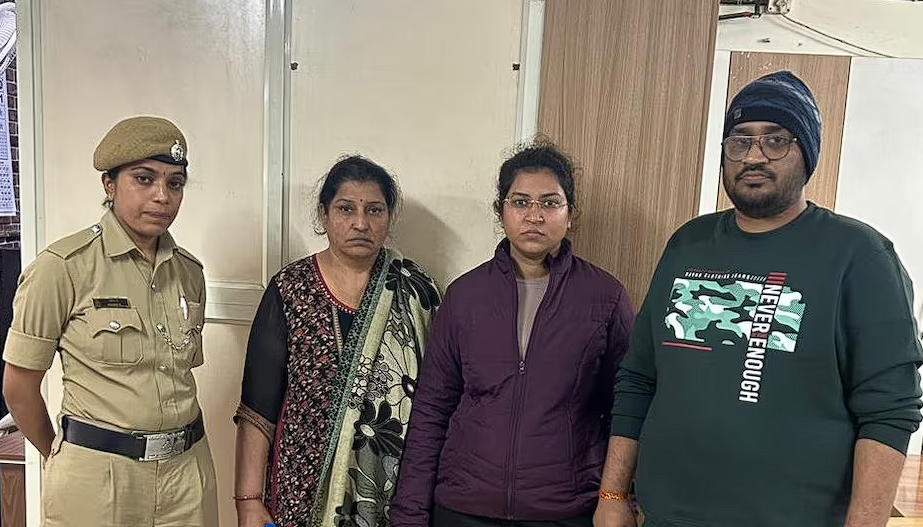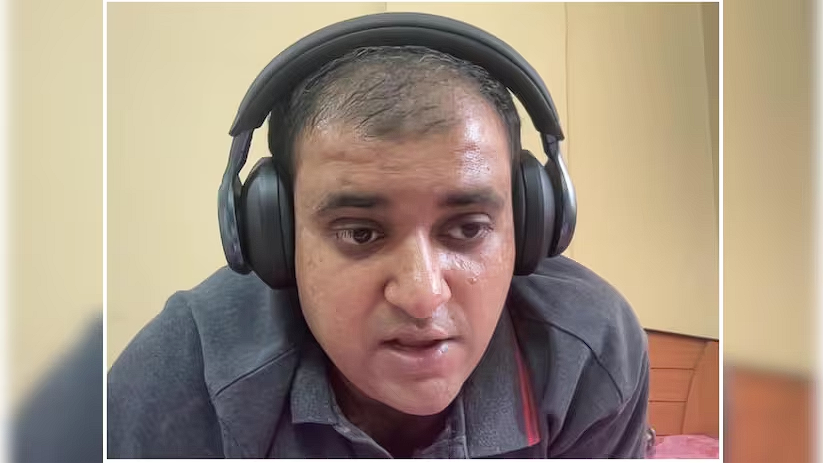The death of Atul Subhas, a 34-year-old tech professional from Bengaluru, has sparked widespread discussions on the challenges men face in marital disputes and the potential misuse of legal protections. Atul ended his life on December 9, 2024, leaving behind an 80-minute video and a 24-page suicide note that detail the alleged harassment he endured from his estranged wife, Nikita Singhania, and her family. His heartbreaking story has stirred public outrage and brought attention to critical societal issues.
Allegations Against the Family
Atul’s detailed accounts accuse his wife and her family of relentless harassment, including false police complaints and demands for exorbitant financial maintenance. Despite providing ₹40,000 in monthly support, Nikita allegedly demanded ₹2 lakh per month, an amount Atul claimed was unsustainable. He also accused a family court judge, Rita Kaushik, of corruption, alleging that she accepted a ₹5 lakh bribe to favor his wife during their legal battles. Atul’s claims reflect his frustration with a system he felt was stacked against him.
Legal Repercussions
Following Atul’s death, his brother, Bikas Kumar, filed an abetment to suicide case against Nikita, her mother, brother, and uncle. Law enforcement arrested Nikita in Gurugram, while her mother and brother were detained in Prayagraj. All three are currently in judicial custody. Nikita, however, has denied the allegations, asserting that she herself faced harassment from Atul. She pointed out that they had been living separately for almost three years before his death.
Public Reaction and Advocacy
Atul’s death has ignited a strong response from various advocacy groups and individuals. Activist Deepika Narayan Bhardwaj, known for her work on men’s rights, has been at the forefront of the campaign demanding justice for Atul. She has highlighted the need for greater awareness of men’s mental health challenges and the misuse of laws designed to protect women. A notable incident occurred when Bhardwaj and her team sought to bring national attention to the case by pursuing a political leader’s convoy, a move that drew mixed reactions.
Judicial Scrutiny and Calls for Reform
Atul’s allegations of corruption against the family court judge have cast a shadow over the judiciary’s role in family disputes. These claims have intensified discussions about potential biases in the judicial process and the need for oversight to prevent abuse of power. The allegations call for a thorough investigation and underline the necessity of maintaining fairness and impartiality in family court proceedings.

Custody Concerns
The case has also brought up questions regarding the custody of Atul’s young son. Following his death, Atul’s mother has petitioned the Supreme Court, seeking custody of her 4-year-old grandson. This development adds another layer of complexity to the ongoing legal and familial disputes, making the child’s welfare a central concern amidst the turmoil.
Broader Implications
The case has reignited debates on the misuse of laws designed to protect against dowry harassment. Section 498A of the Indian Penal Code, often invoked in marital disputes, has faced criticism for being misused to harass men and their families. While the law was enacted to safeguard women from dowry-related violence, its misuse has led to calls for legal reforms to strike a balance between protection and fairness.
Mental Health and Social Awareness
Atul’s tragic death also underscores the urgent need to address mental health challenges in men, particularly those involved in prolonged legal and familial conflicts. His suicide note and video reveal the emotional strain he endured, highlighting the importance of support systems for men in distress. Advocates argue that greater societal awareness and mental health resources are essential to prevent such tragedies.
A Case for Change
The death of Atul Subhas has become a rallying cry for systemic reform. It sheds light on the human cost of unresolved disputes and legal battles, emphasizing the need for a balanced approach that protects all parties fairly. As the case unfolds, it is a stark reminder of the complexities of marital disputes and the importance of mental health, fairness, and accountability in the legal system.
Disclaimer: The above all information has researched through multiple sources like Wikipedia, NDTV, Times of India etc.
Keywords – The Atul Subhas suicide case, involving a Bengaluru techie and allegations of dowry law misuse, has raised critical discussions about men’s rights in India, mental health in marital disputes, and the misuse of Section 498A. This case highlights the impact of false dowry harassment cases, judicial corruption allegations, and biased judgments in family courts. Public outcry, campaigns like #JusticeForAtulSubhas, and activists like Deepika Narayan Bhardwaj have amplified the need for legal reforms to prevent such tragedies. Issues like custody battles, family court corruption, and the mental health struggles of men facing false legal allegations have come to the forefront, prompting debates about fairness and accountability in India’s legal system. Using keywords like “dowry law misuse,” “men’s mental health awareness,” and “justice for Atul Subhas” can help spread awareness about this pressing issue.

